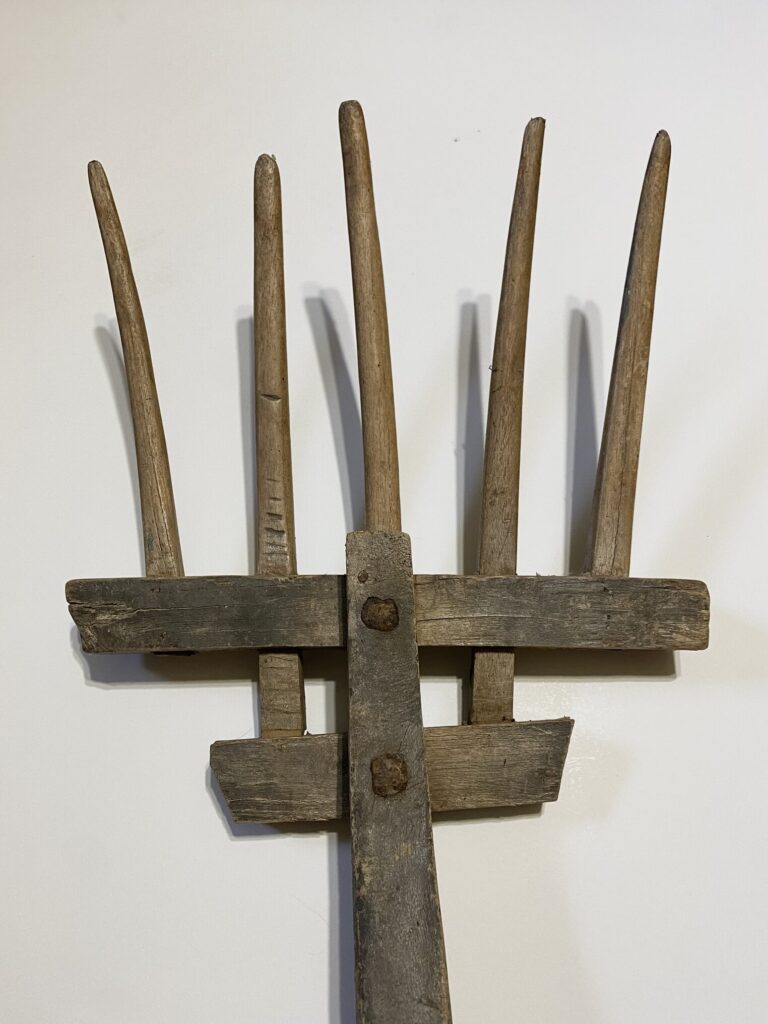A Farmer’s Tools
These were the simple tools that helped to raise and process crops on the farm.
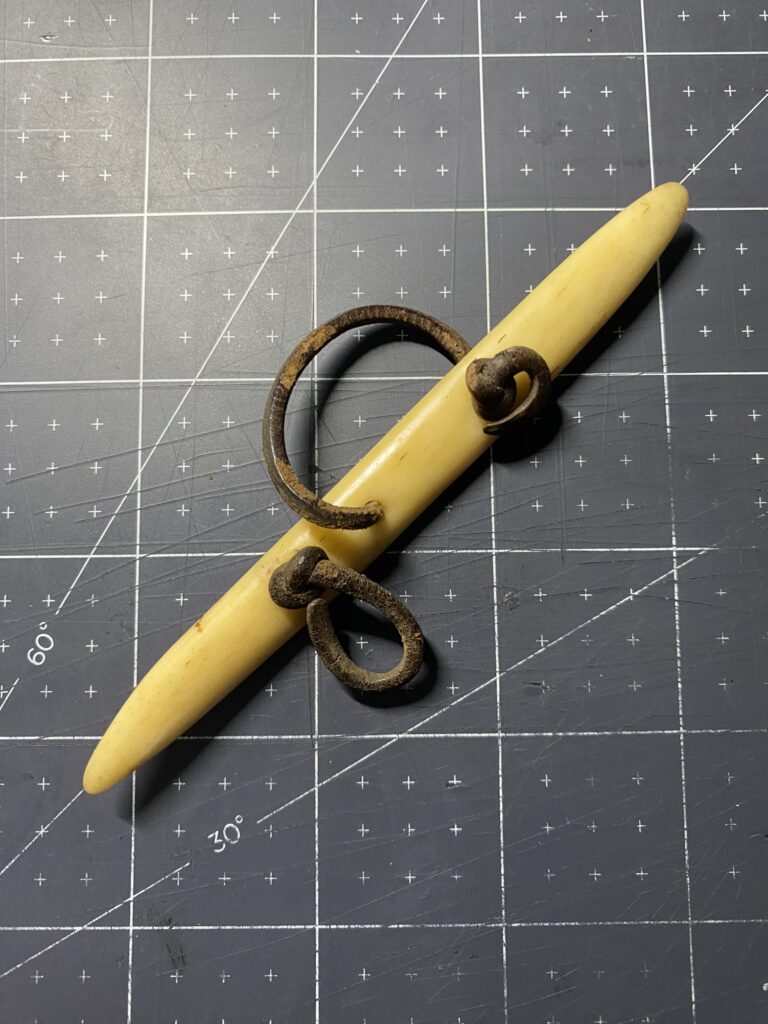
Item: corn husker
Date of origin: mid 20th century
Materials: bone & leather
Notes: Simple tool with smooth, thin bone and a leather string tied into a loop to secure around the user’s finger. The sharp end helps to cut through and separate the husk from an ear of corn harvested from the stalk.
Item: corn husker
Date of origin: mid 20th century
Materials: wood & leather
Notes: Another similar tool from the same collection.
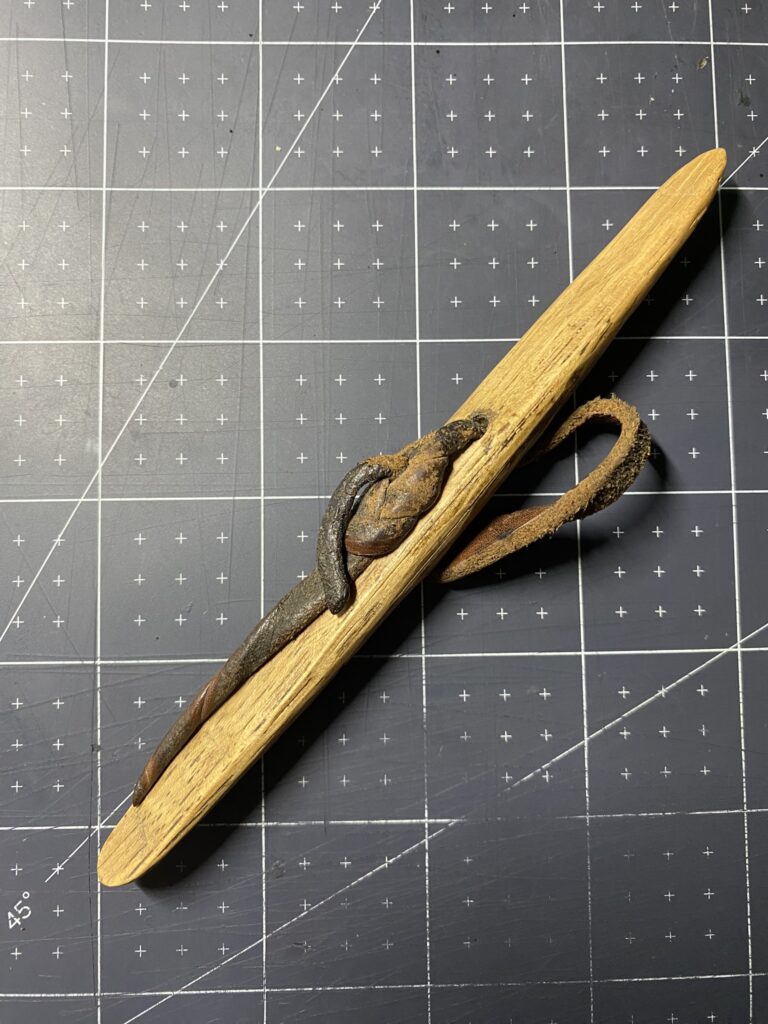
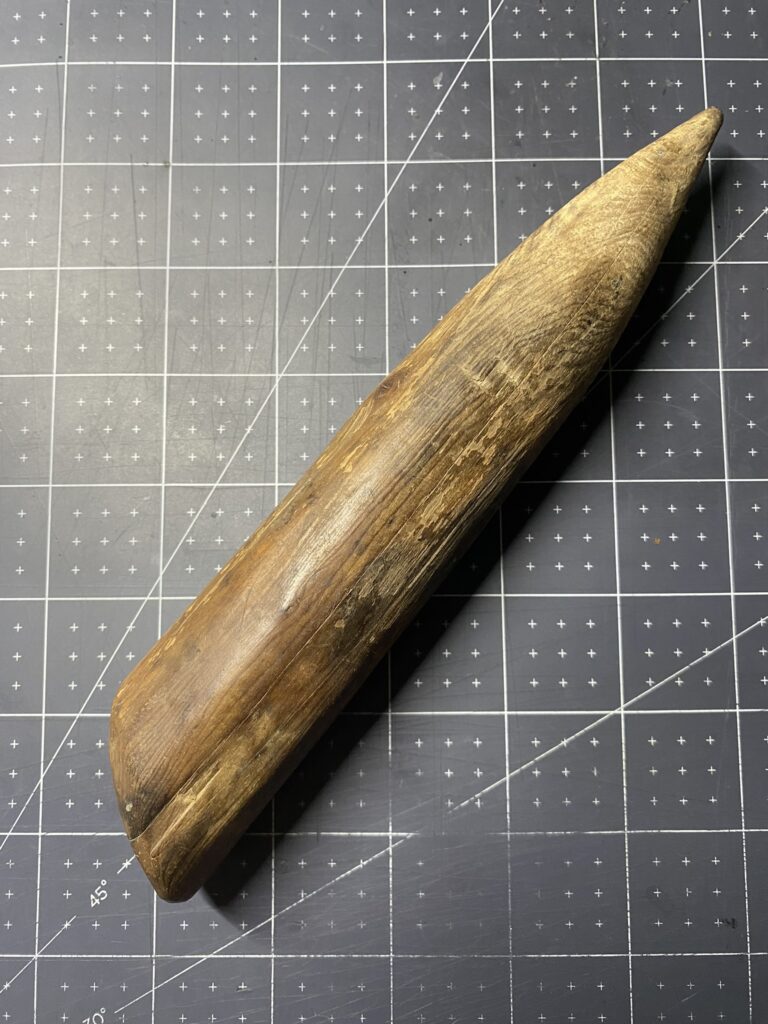
Item: tobacco planting peg
Date of origin: ca. 1940’s
Materials: wood
Notes: Surface appears shiny from contact with hand oils over time. The sharpened tip is dulled and ingrained with dirt from years ago. This tool was used to transplant tobacco seedlings from seed beds to the plowed field. The user stooped down and formed a hole in their “hills,” and then transplanted the small plant into the ground, sometimes also using this tool to roll around and pack down the ground around the roots.
Item: tobacco knife
Date of origin: ca. 1940’s
Materials: wooden handle with metal blade
Notes: This tool was used to cut down the stalk of tobacco, which today is commonly not done. Now all leaves are pulled and the stalks are left in the field.
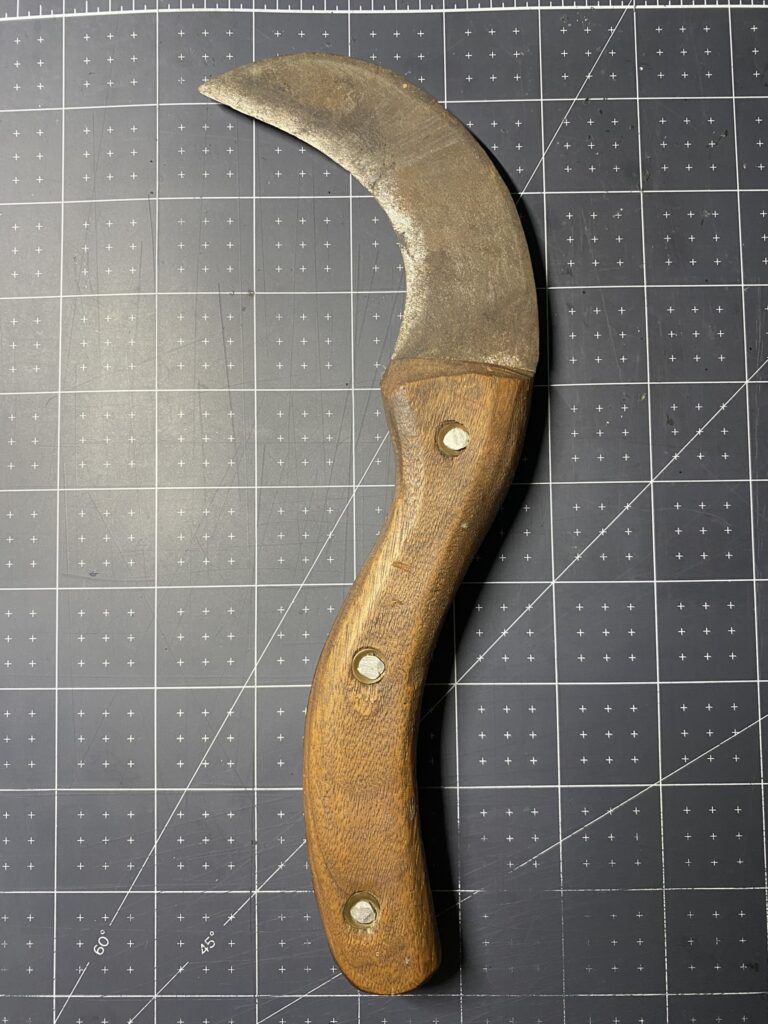
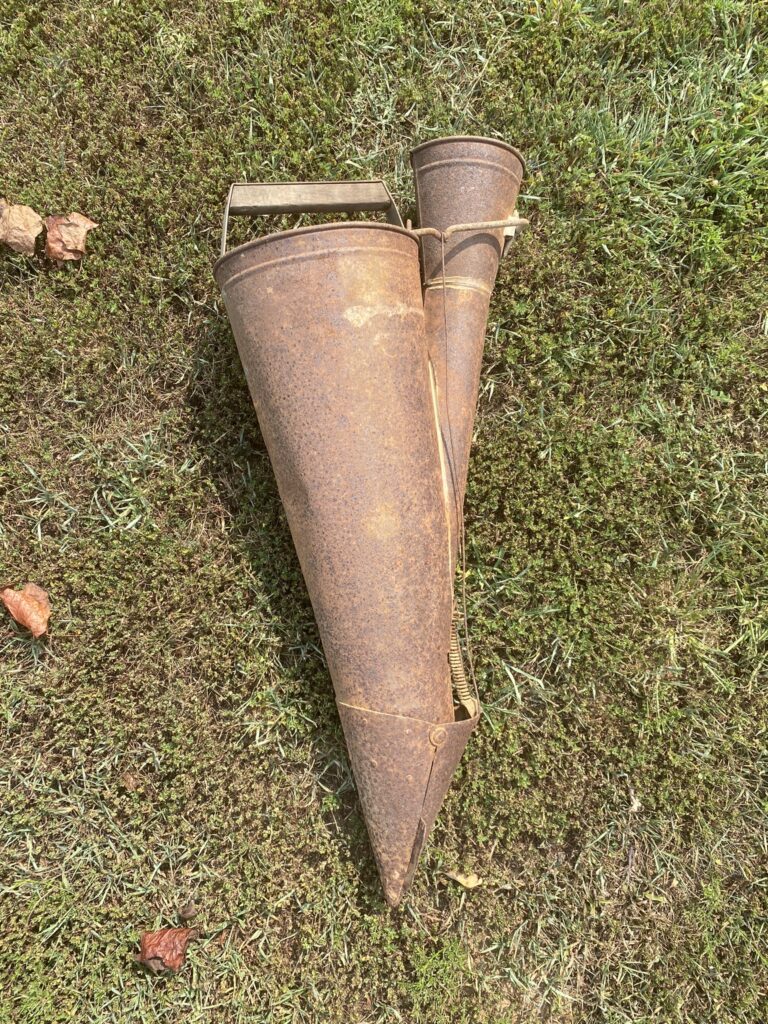
Item: tobacco planter
Date of origin: mid 20th century
Materials: metal body, springs, and wooden handle
Notes: This tool replaced the simple wooden planting peg and saved the backs of many. This was also used to transplant tobacco seedlings from seed beds to the plowed field.
Item: pitch fork
Date of origin: early 20th century
Materials: wooden handle and prongs with large metal nails.
Notes: This wooden pitch fork was made by an individual to transfer hay on their farm. Overall it has has five prongs, one of which has several noticeable notches carved into it like tallies.
